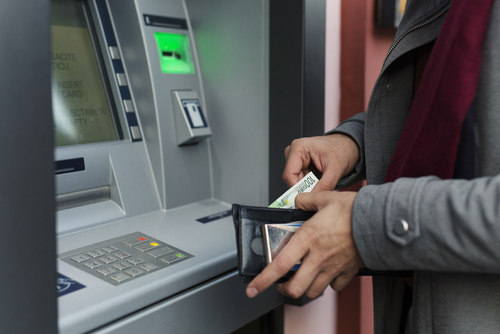A recent survey focussed on the growth of South African customers who bank with the ‘big five’, but it also pointed out that nearly 32% of South Africans don’t have a bank account at all.
20 June 2018 · Isabelle Coetzee

A recent survey focussed on the growth of South African customers who bank with the ‘big five’, but it also pointed out that nearly 32% of South Africans don’t have a bank account at all.
This was announced in April by the Publisher Research Council (PRC) who was responsible for producing the Publisher Audience Measure Survey (PAMS).
This research was conducted by Nielson and included 17,000 respondents consisting of readers of 150 newspapers, magazines, and websites.
According to Arthur Goldstuck, ICT analyst and CEO of World Wide Worx, information and communications technology holds the key to financial services access.
“The banking apps in themselves have not increased access yet, as they still require 'onboarding' to take place in a branch,” says Goldstuck.
Onboarding refers to the initial opening of a bank account, which customers usually need to be physically present for.
According to a Nedbank spokesperson, many South Africans struggle to afford the transportation costs of travelling to a bank branch to do this ‘onboarding’.
Pieter Woodhatch, CEO of FNB Easy, points out that South Africans rarely choose not to have a bank account.
“I think macro-economic factors determine whether a bank account is feasible to individual South Africans,” says Woodhatch.
“Seasonal workers will abandon their bank account in months where there is no income. Other clients live in a largely unseen economy that is still cash driven,” he explains.
Goldstuck believes this will change in the coming months as banks like Zero and Tyme change the onboarding process.
“This will allow customers to open an account with minimal human contact and certainly without the need to visit a branch,” says Goldstuck.
Woodhatch doesn’t believe banking apps alone are the solution, but rather that innovative banking solutions and access mechanisms are the answer.
He explained that FNB just launched a new product called eWallet eXtra that utilises USSD codes, which means that any feature phone can manage the account and access banking services.
Similarly, a Nedbank spokesperson explained that Nedbank intends to launch MobiMoney, which is a mobile wallet. Customers will simply need to dial a USSD code and have their name and ID number ready to open a bank account.
“You can then bank anytime, anywhere using your cellphone number as your bank account number,” said the spokesperson.
According to Goldstuck, a key obstacle to banking access is the cost of data when making use of banking apps.
“Zero rating all banking apps by all mobile network operators would be a good starting point, as it would address the cost of access,” he explains.
Goldstuck points out that that another barrier to the efficient use of a bank account is the cost of transactions.
“We have seen with retail money transfer in South Africa and mobile money in Kenya, that even high transaction costs are not stopping people from using these services. They regard them as essential,” says Goldstuck.
“However, far more needs to be done in terms of transaction costs to make such services more inclusive. We can expect significant disruption of the market if current or new players crack this code,” he adds.
According to a Nedbank spokesperson, South Africans who don’t have bank accounts may face the following consequences:
Have a look at the following pages on Justmoney where you can compare different bank accounts to find out which is the best option for you. Compare current accounts, savings accounts, and credit cards.
Free tool

info@justmoney.co.za
4th Floor, Mutual Park, Jan Smuts Drive,
Pinelands, Cape Town, 7405
© Copyright 2009 - 2025 · Powered by NCRCB29
Terms & Conditions
·
Privacy Policy
·
PAIA Manual
View your total debt balance and accounts, get a free debt assessment, apply for a personal loan, and receive unlimited access to a coach – all for FREE with JustMoney.